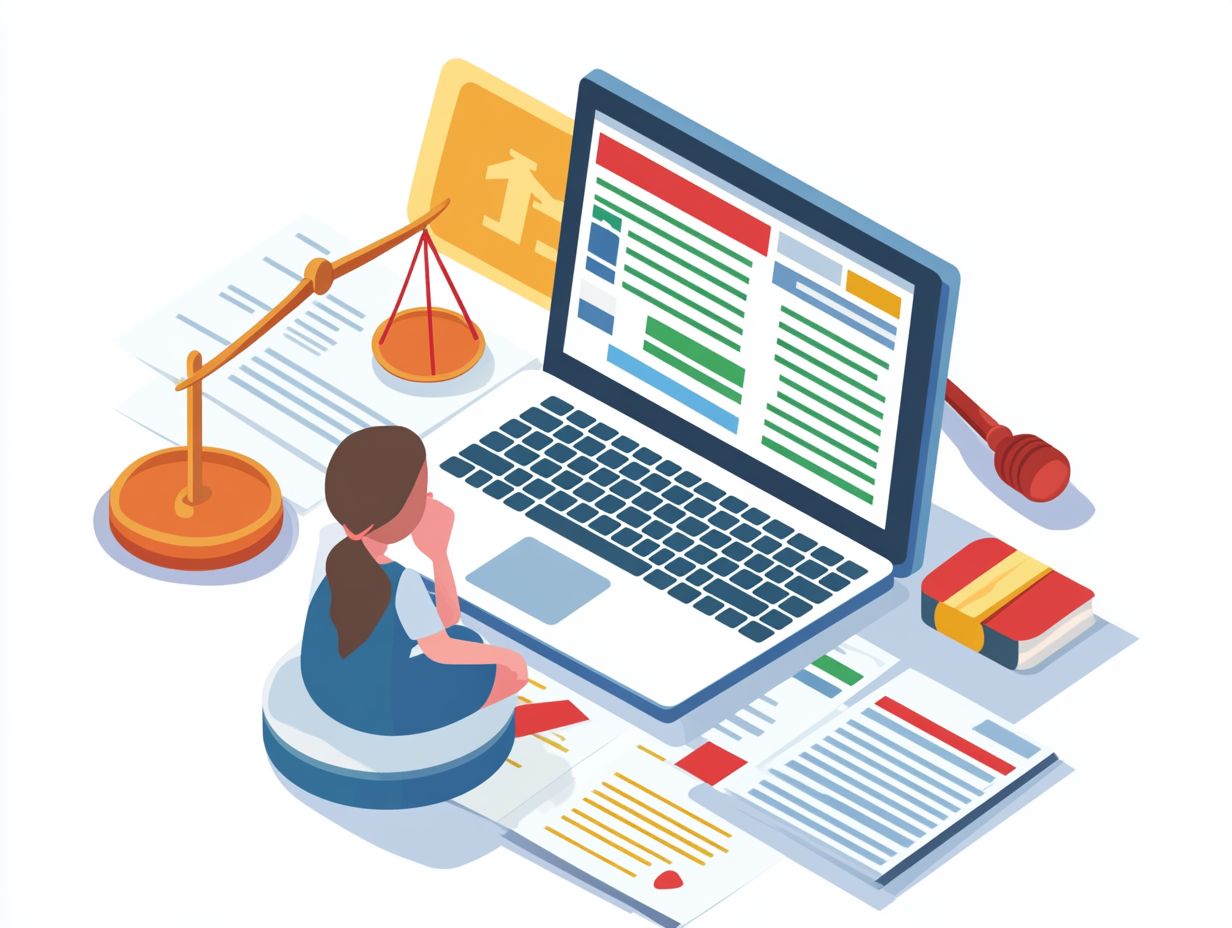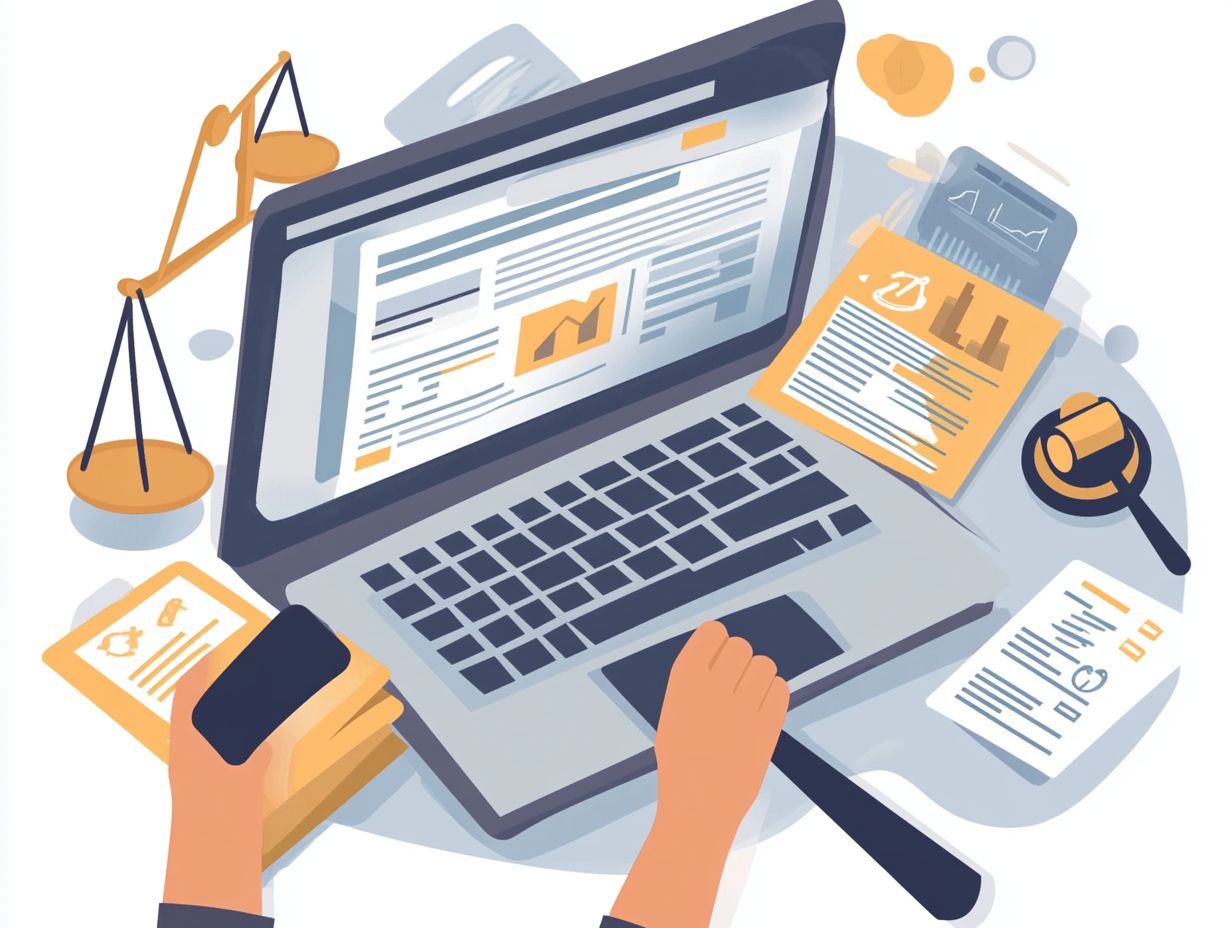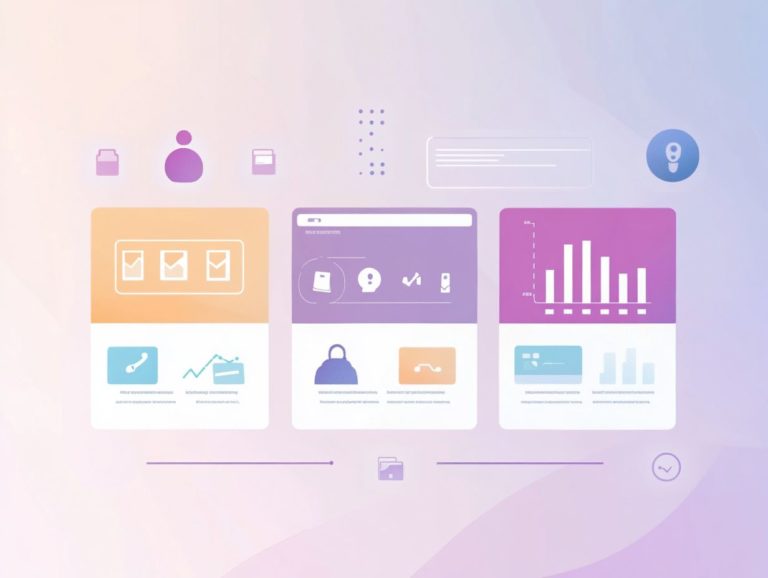What Are the Legal Implications of CRM Software?
In today’s data-driven landscape, Customer Relationship Management (CRM) software is vital for enhancing how you interact with your customers. Grasping the legal implications of using CRM software is essential for your organization. From data privacy laws to compliance with industry regulations, the legal terrain can be quite intricate. This article covers CRM’s definition, potential legal challenges, and best practices to mitigate risks, ensuring your business thrives both legally and ethically. Keep reading to empower yourself with the essential knowledge to master CRM use!
Contents
- Key Takeaways:
- Understanding CRM Software
- Legal Considerations for Using CRM Software
- Potential Legal Issues with CRM Software
- Best Practices for Mitigating Legal Risks
- Frequently Asked Questions
- What Are the Legal Implications of CRM Software?
- Is it Legally Required for a Business to Use CRM Software?
- What Privacy Laws Should Businesses Be Aware of When Using CRM Software?
- Can CRM Software Be Used for Email Marketing?
- What Are the Potential Consequences of Not Complying with Legal Obligations Related to CRM Software?
- Are There Any Specific Data Protection Obligations for Businesses Using CRM Software?
Key Takeaways:

Data privacy and protection laws must be closely followed when using CRM software to ensure the security and confidentiality of customer data. Compliance with industry regulations is crucial for businesses utilizing CRM software to avoid legal repercussions and maintain trust with customers. Implementing strong data management and security protocols, as well as transparent consent policies, can help mitigate legal risks associated with CRM software usage.
Understanding CRM Software
Understanding CRM software is vital for law firms wanting to enhance client relationships and streamline lead generation. A strong legal CRM solution can significantly improve client satisfaction and business growth by centralizing client interactions and automating administrative tasks.
With cloud-based systems and advanced features such as lead tracking and appointment scheduling, your firm can leverage data analysis and metrics dashboards to refine marketing strategies and enhance team collaboration. This approach ensures a more personalized experience for your clients, setting your firm apart in a competitive landscape.
Definition and Purpose
CRM software is advanced software that law firms use to manage client relationships, streamline processes, and enhance overall business effectiveness. It becomes an essential tool that cultivates improved communication between attorneys and their clients, ensuring that every interaction is both meaningful and personalized.
The software’s lead tracking capabilities enable legal professionals to monitor potential clients throughout their journey from that first inquiry to conversion optimizing marketing strategies along the way. The appointment scheduling features help organize consultations smoothly, significantly lowering the chances of missed opportunities.
By utilizing CRM software, you elevate client satisfaction and enhance your firm’s efficiency and case management workflows.
Legal Considerations for Using CRM Software
When you implement legal CRM software, it’s crucial to navigate a range of legal considerations to ensure compliance with data protection and privacy regulations, particularly regarding data subjects. These regulations, including adherence to GDPR, necessitate the adoption of robust security measures think bank-grade encryption to protect sensitive client data and maintain client satisfaction. Grasping these legal obligations is vital for building trust and ensuring that your client relationship management systems are used effectively.
Data Privacy and Protection Laws

Data privacy and protection laws, like GDPR compliance, are pivotal in shaping how you handle client data within your CRM software. These regulations require you to adopt stringent data management practices to safeguard sensitive information. Therefore, it s essential for your law firm to ensure that your CRM systems are equipped with robust security protocols designed to protect client data from potential breaches and unauthorized access.
However, compliance goes beyond just technological measures; it requires a cultural shift within your firm. You need to foster an atmosphere of accountability and transparency when it comes to managing client data. Regular audits and employee training on data protection best practices are crucial to nurturing this culture.
Ultimately, by embracing these laws, you not only enhance client trust but also cultivate a more secure and efficient approach to legal technology, positioning your firm as a responsible steward of sensitive information.
For further insights, consider evaluating your CRM approach or consulting with professionals for better compliance.
Compliance with Industry Regulations
Compliance with industry regulations is essential for law firms using legal CRM software. Failing to comply can lead to severe penalties and damage client trust.
In today’s world, understanding regulations like the General Data Protection Regulation (GDPR) and local privacy laws is crucial. These regulations dictate how you collect, store, and use client information.
Your legal practice needs to adopt strong security measures, including encryption, access controls, and regular audits. This protects sensitive data effectively.
Following these regulations shields you from legal trouble and boosts your marketing. By ensuring compliance, you can build trustful client relationships and position your firm as a reliable guardian of confidential information.
Potential Legal Issues with CRM Software
CRM software offers significant advantages, but law firms must recognize potential legal pitfalls. Issues like data breaches and security threats can arise if client data is not safeguarded.
Protecting client data is a necessity. Any mishandling of this information can lead to serious legal consequences and damage your firm’s reputation.
Understanding these risks is vital for law firms that want to harness legal technology while protecting client information.
Data Breaches and Security Concerns
Data breaches pose serious security challenges for law firms using CRM software. These incidents can compromise sensitive client information and erode client trust.
As you rely more on digital platforms, your firm becomes a target for cybercriminals. A breach can jeopardize confidential information and threaten your firm s reputation.
To safeguard client data, implement strong security measures like bank-grade encryption. Regular security audits and employee training can enhance your defenses against evolving threats.
Misuse of Customer Data

Misusing customer data in legal CRM systems can lead to severe legal consequences and lower client satisfaction. Clients expect their sensitive information to be handled carefully.
Failing to comply with privacy regulations can result in hefty fines and damage your firm s reputation in an industry where credibility is crucial.
To reduce these risks, adopt strong data governance policies and invest in security training for your staff. Transparency about data use can help foster better client relationships.
Best Practices for Mitigating Legal Risks
Implementing best practices for data management and security is crucial for law firms. Prioritize transparency and consent in client interactions to build trust and ensure compliance.
Embracing workflow automation can streamline your processes. This reduces errors in client interactions, enhancing both efficiency and client satisfaction.
Protecting Your Client’s Data: Management and Security
Effective data management and robust security protocols are essential for law firms utilizing legal CRM software. These strategies help safeguard sensitive client information, ensure compliance with industry regulations, and build trust with clients who expect their personal data to be handled with care.
By embracing best practices such as data encryption turning information into a code for protection conducting regular security audits, and training employees on data protection laws, you can greatly reduce your risk of data breaches.
Implementing comprehensive access controls is essential. This ensures that only authorized personnel can view or modify sensitive client data. Establish a responsive incident management plan to swiftly address any potential security threats, providing clients peace of mind that their information is secure.
Transparency and Consent Policies
Establishing transparency and consent policies enhances client engagement and ensures compliance with data protection regulations.
Creating an environment where clients feel informed about how their data is handled strengthens trust and mitigates non-compliance risks.
Clear communication regarding data usage and obtaining explicit consent deeply impacts the overall client experience. Regular training for staff on these policies and integrating user-friendly consent mechanisms will keep your firm ahead in the evolving regulatory landscape.
Leveraging technology to automate and audit these processes can streamline compliance efforts and reinforce the importance of ethical practices in client relationships.
Frequently Asked Questions

What Are the Legal Implications of CRM Software?
The legal implications of CRM software include the potential consequences and obligations associated with using customer relationship management software. This encompasses compliance with privacy laws, data protection regulations, and consumer protection laws.
Is it Legally Required for a Business to Use CRM Software?
No, it is not legally required. However, many businesses choose to use CRM software as it helps manage customer interactions and data more effectively.
What Privacy Laws Should Businesses Be Aware of When Using CRM Software?
Businesses should be aware of privacy laws such as the General Data Protection Regulation (GDPR) and the California Consumer Privacy Act (CCPA). These laws govern how businesses collect, use, and store personal data.
Can CRM Software Be Used for Email Marketing?
Yes, CRM software can be used for email marketing. However, businesses must comply with email marketing laws, such as the CAN-SPAM Act, which requires providing an opt-out option and honoring unsubscribe requests.
What Are the Potential Consequences of Not Complying with Legal Obligations Related to CRM Software?
Not complying with legal obligations related to CRM software can lead to fines, legal action, and damage to the business’s reputation. It is vital for businesses to stay informed on relevant laws and regulations to avoid these consequences.
Are There Any Specific Data Protection Obligations for Businesses Using CRM Software?
Yes, businesses using CRM software have specific data protection obligations. These include securing personal data and obtaining consent from individuals before collecting and using their data.
Understanding the legal implications of CRM software is crucial for any business. Begin implementing best practices today to secure your client data!






